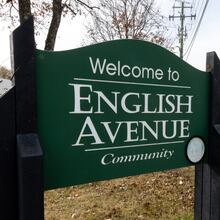More than 50 percent of American adults do not have an estate plan in place. The reasons people give for not having a plan range from being single to not being wealthy. Neither is a good reason, says Lisa Brown, an accredited estate planner, CFA and partner at Brightworth.
“Estate planning is important for everybody who has assets to their name and is a legal adult,” she says. “People may think of estate planning as ‘I need a fancy will or fancy trust,’ but it is also making sure you have some basic documents in place.”
There are three documents every adult should have, Brown says.
- Power of attorney for finances: In the event that you are incapacitated, this document names someone to manage your financial affairs such as paying bills.
- Power of attorney for health care: Again, if you become incapacitated, this spells out your wishes for medical treatment and names the person or persons who can make medical decisions on your behalf. In addition, parents should give themselves power of attorney for children away at college, Brown says.
- A basic will: "Everyone should have a basic will whether they have $5,000 or $5 million to their name," Brown says. "Without a will, the state of Georgia dictates how those assets are passed." Spouses may assume their assets will go to each other, but in Georgia, they would be divided among the surviving spouse and children, Brown notes. Individuals with young children may want to have a trust drawn up inside of their will, Brown says. Any inheritance is held in the trust with a designated trustee. You can include whatever stipulations you like on the disbursement of the money to be sure your children are covered financially both as minors and into adulthood.
When it comes to preparing these documents, you may be tempted to use a software package to do it yourself. If your assets are minimal, that may be fine, Brown says. “Anyone with a reasonable balance sheet to their name should have an attorney draw up their packages. This is so important, you really want to do it right,” she says.
Be sure to use an estate planning attorney, Brown says. Ask friends or trusted professionals for recommendations. Or use the website www.actec.org to find an attorney in your area.
You can expect to spend at least $500 for basic documents and $1,000 to $3,000 for more complex situations such as trusts and out-of-state property, she says.
Consider your estate plan to be a three- to five-year document. Have it reviewed if you move to a different state, when you are married or divorced, when you have children or if someone you have named as a trustee or beneficiary is aging, ill or deceased.
An estate plan is an investment in your family, Brown says. Spending a little money to address it is worth it.
About the Author





